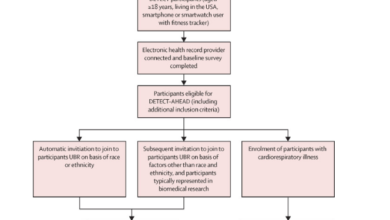Understanding the Link Between Early Menopause and Cancer

Every woman experiences menopause, but when periods stop before the age of 45, it is called early menopause. Its main symptom is irregular periods or the complete absence of them. Other symptoms include night sweats, vaginal dryness, difficulty sleeping, and reduced sex drive, similar to those experienced by women over 45 during menopause. While it might seem that early menopause is not a significant issue, it should not be taken lightly as it may increase the risk of developing breast and ovarian cancer. Read on to understand the link between early menopause and cancer.
Table of Contents
New Study on Early Menopause and Cancer
Research presented earlier this month at the annual meeting of the Endocrine Society in Boston, U.S., indicates that women who experience early menopause are at an increased risk for developing breast and ovarian cancer. Researchers at the University of Utah Health in Salt Lake City hypothesized that some women with primary ovarian insufficiency and their family members might be predisposed to certain types of cancers. Primary ovarian insufficiency occurs when a woman’s ovaries stop functioning normally before age 40. The study found that women who had early menopause had twice the risk for breast cancer and nearly four times the risk for ovarian cancer.
Another study, published in May 2024 in Endocrine Abstracts, found that women who enter menopause before turning 40 are more likely to die at a younger age. These women are twice as likely to die from heart disease and four times as likely to die from cancer.
What Is Menopause?
Menopause is a natural biological process that marks the conclusion of menstrual cycles and reproductive years. It typically occurs in women after age 45. During this phase, a woman’s ovaries significantly reduce their production of estrogen and progesterone, the two key hormones that regulate the menstrual cycle and reproductive system, explains obstetrician and gynecologist Dr. Chetna Jain.
What Is Early Menopause?
Early menopause is the onset of menopause before the age of 45, characterized by the same symptoms and hormonal changes as typical menopase, but occurring earlier in a woman’s life.
What Are the Causes of Early Menopase?
Here are some causes of early menoause:
- A family history of early menpause
- Procedures such as chemotherapy, radiation therapy, and surgical removal of the ovaries
- Conditions like thyroid disease and rheumatoid arthritis
- Smoking
- Poor diet
- Certain infections, such as mumps, that can damage the ovaries
How Is Early Menpause Linked to Breast and Ovarian Cancer?
Early menopuse can be linked to breast and ovarian cancer primarily through its association with medical treatments and genetic factors. Treatments like chemotherapy or radiation therapy for cancer may induce early menopuse due to their damaging effects on the ovaries. Surgical removal of ovaries (oophorectomy) as a preventive measure for those at high risk of ovarian or breast cancer (such as women with BRCA1 or BRCA2 mutations) results in immediate menpause. Genetic mutations, such as BRCA1 and BRCA2, significantly increase the risk of both breast and ovarian cancers, leading women with these mutations to undergo prophylactic oophorectomy to reduce cancer risk.
How to Prevent Early Menpause?
While it is not entirely possible to prevent early menopuse, you can take steps to reduce the risk:
- Healthy Lifestyle Choices: Avoid smoking, maintain a balanced diet, keep a healthy weight, and stay physically active to support reproductive health and regulate hormones.
- Medical Interventions: For women undergoing treatments like chemotherapy or radiation, options such as egg freezing or ovarian shielding may help preserve fertility and delay menopuse. Hormone therapies may also help regulate menstrual cycles and maintain hormone levels.
- Manage Health Conditions: Effectively managing autoimmune diseases with the help of a doctor can reduce the risk of early ovarian failure. Routine check-ups can help detect and manage health issues that might contribute to early menopase.
- Stress Management: Chronic stress can impact hormone levels. Techniques such as yoga, meditation, and mindfulness can help manage stress.




